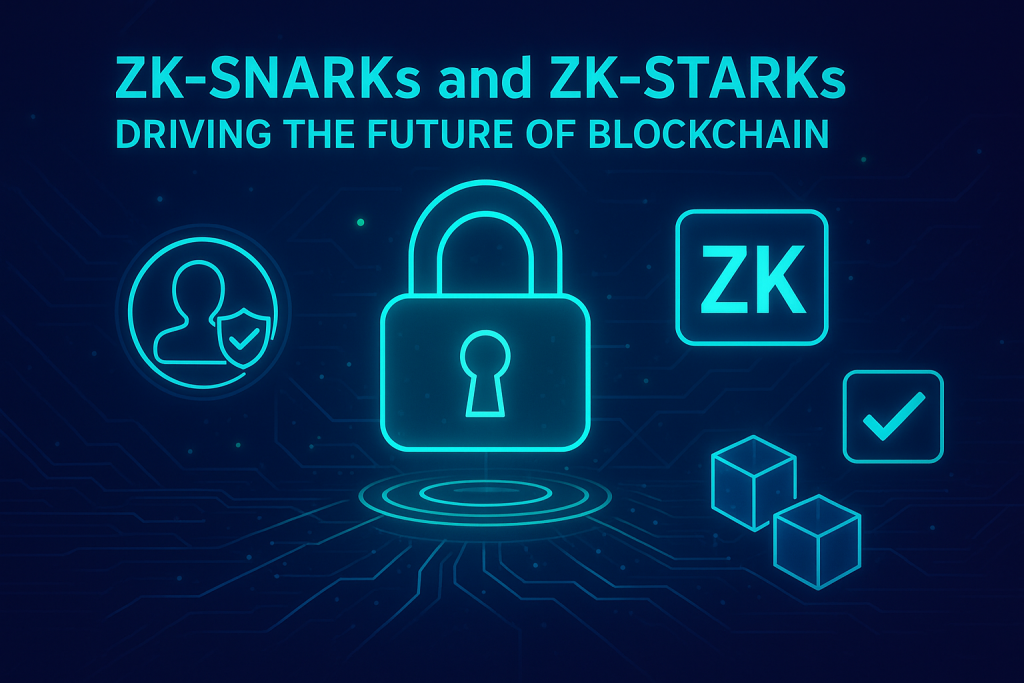Zero-Knowledge Proofs (ZKPs) are no longer just a niche cryptographic concept — they are now one of the most exciting breakthroughs driving the next generation of blockchain adoption. By allowing one party to prove that a statement is true without revealing any underlying information, ZKPs unlock new levels of privacy and scalability for decentralized applications.
ZK-SNARKs: The First Wave
ZK-SNARKs (Zero-Knowledge Succinct Non-Interactive Arguments of Knowledge) became popular with privacy-focused projects like Zcash. They allow verification of transactions without disclosing sender, receiver, or amount, all while keeping proofs very small and efficient. Today, ZK-SNARKs are being integrated into Ethereum’s Layer-2 rollups to reduce transaction costs and boost throughput.
ZK-STARKs: The Scalable Upgrade
ZK-STARKs (Zero-Knowledge Scalable Transparent Arguments of Knowledge) solve one of the biggest limitations of SNARKs — the need for a trusted setup. STARKs are transparent, post-quantum secure, and more scalable, making them ideal for enterprise-grade solutions and high-frequency DeFi applications. StarkWare, a pioneer in this space, is building StarkNet, a permissionless zk-rollup that promises near-infinite scalability for Ethereum.
The Mainstream Adoption
Major players like Polygon, zkSync, and Scroll are racing to bring ZK-based rollups to market. These solutions combine privacy-preserving cryptography with faster finality and lower fees, making blockchain more accessible for millions of users. Tech giants and financial institutions are also exploring ZKP-based solutions for compliance-friendly private transactions.
What Comes Next
As zk-proofs mature, expect new applications beyond DeFi and payments — from decentralized identity (DID) to private voting and confidential supply chain tracking. ZKPs could become the backbone of Web3 infrastructure, ensuring both security and privacy at scale.
In short, ZK-SNARKs and ZK-STARKs are no longer experimental. They are becoming the standard for building the next generation of scalable, privacy-first blockchain ecosystems.


